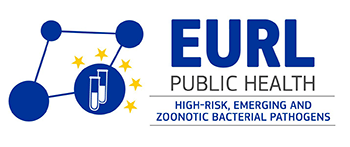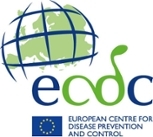EU Reference Laboratory for Public Health on "High-risk, emerging and zoonotic bacterial pathogens"
EURL-PH-HEZB
Date: 07/04/2025

Since 1 January 2025, the EU Reference Laboratory for Public Health on "High-risk, emerging and zoonotic bacterial pathogens" (EURL-PH-HEZB) has launched its activities. It is one of the new designated EU reference laboratories for public health (EURLs). The EURL is led by a consortium coordinated by the Robert Koch Institute’s unit ZBS 2 "Highly Pathogenic Microorganisms".
News
Objectives
The EURL-PH-HEZB covers emerging and zoonotic bacterial pathogens including Bacillus anthracis (anthrax), Yersinia pestis (plague), Francisella tularensis (tularemia), Brucella spp. (brucellosis), Burkholderia mallei (glanders), Burkholderia pseudomallei (melioidosis), Coxiella burnetii (Q fever), Rickettsia spp. (rickettsiosis), Borrelia spp. (borreliosis) and Leptospira spp. (leptospirosis). Its aim is to support national reference laboratories to promote good practice and alignment by Member States on a voluntary basis regarding diagnostics, testing methods, use of certain tests for the uniform surveillance, notification and reporting of serious cross-border health threats, thus also ensuring data comparability at EU level.
Project summary
As the human population is confronted with emerging and re-emerging infectious pathogens that can cause serious cross-border outbreaks, the EU Reference Laboratory (EURL) for Public Health on “high-risk, emerging and zoonotic bacterial pathogens”, operating under the guidance of the ECDC, aims to strengthen national expert laboratories’ capacities and to support a uniform surveillance, notification and reporting of diseases or the causative bacterial agents.
By promoting good practice and alignment on diagnostics in the network member laboratories, an efficient, rapid and coordinated response according to the ECDC surveillance reporting system will be enhanced. This EURL contributes to the sustainable implementation of the Regulation (EU) 2022/2371 on serious cross-border threats to health and the repealing Decision No 1082/2013/EU, Article 15.
To ensure efficiency and to avoid duplication of efforts, the EURL will actively collaborate with other EURLs and relevant initiatives within the European public health framework.
External quality assessment, sharing of reference materials, as well as appropriate training and twinning activities will ensure best laboratory responsiveness, diagnostics and bio-risk management, while fostering alignment of approaches on a voluntary basis.
During outbreak situations and in case of unusual occurrences, the EURL will provide information (including pathogen characteristics), guidance, and support to the ECDC contributing to ECDC risk assessments.
Funded by the European Union under the EU4Health programme, the EURL-PH-HEZB will operate for seven years under the coordination of the ECDC.


Funded by the European Union. Views and opinions expressed are however those of the author(s) only and do not necessarily reflect those of the European Union or the European Health and Digital Executive Agency. Neither the European Union nor the granting authority can be held responsible for them.
Consortium partners
The EURL-PH-HEZB consortium also includes the Bundeswehr Institute of Microbiology in Germany, the Swedish Folkhälsomyndigheten and the Instituto Nacional de Saúde Doutor Ricardo Jorge in Portugal.

